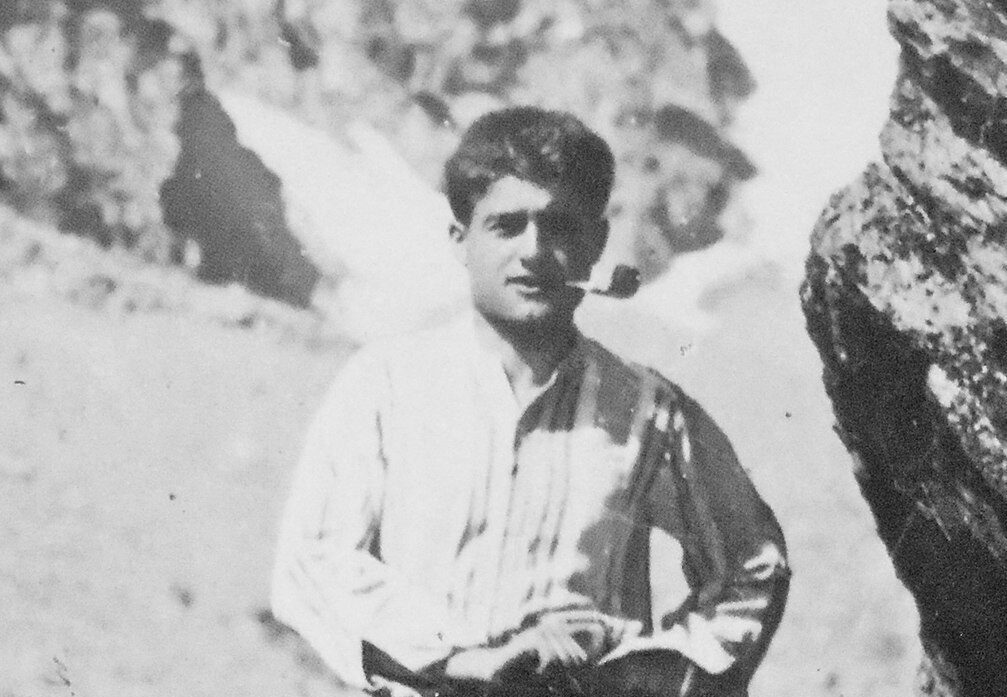Travel often takes us outside of the ordinary. To places that allow us to see the world in a different way. However, when our ability to travel is limited by any number of circumstances— such as personal limitations, financial constraints, or a global pandemic such as the one we are faced with in 2020— it’s reassuring to know that one doesn’t need to visit a far off holy space in order to hear God’s voice or to feel His presence. We can pilgrimage from home.
Maybe the beauty of a local church or intimate fellowship with friends will prove to be the evidence of God’s voice in our lives. Whatever this season entails, the more we allow ourselves to spot His purposeful presence, the more captivated our hearts will become with the splendor of God’s creation.
Freedom of Simplicity
Every decision about what to bring on a pilgrimage gives our souls time to pause—to not just differentiate between the tangible items to bring or leave behind, but also to decide what parts of our souls we will allow to have weight. As we find ourselves both holding on, and letting go, we enter into a new form of simplicity we often do not afford ourselves in the daily rigors of life.
Perhaps we will find ourselves more willing to free ourselves from the stresses of work. Maybe we will take a much-needed step back from relational complexities. Whatever headspace we find ourselves in, intentional slowness provides us with the space to find new clarity. And as our souls find peaceful respites, we open ourselves up to a greater understanding of God’s voice in our lives.
Although no bags are being packed during a pilgrimage from home, it’s possible to practice simplicity by:
Giving thanks
Slowly review your day in your mind— your movements, conversations, actions, and attitudes —and give thanks to God for all of it. Note the highs and lows, the joys and struggles, the ordinary and extraordinary. Review your day in gratitude.
Notice your emotions
As you walk through your day, pay close attention to the emotions you feel about particular moments or snapshots of your day. Ask God to help you understand where these emotions and feelings are coming from, and what God might be showing you through them.
Look toward tomorrow
End your time in prayer by inviting God to shed light on tomorrow’s day. Pray for whatever might be on your heart — a worry or fear, or maybe an exciting opportunity. Invite God to be present and transform your day. Ask God for whatever you might need for tomorrow’s day, concluding with a prayer of thanksgiving.
A Willing Openness
The prayer below, written by Trappist Monk Thomas Merton, perfectly describes the pilgrim’s goal in saying “yes” to going on pilgrimage.
My Lord God,
I have no idea where I am going.
I do not see the road ahead of me.
I cannot know for certain where it will end.
Nor do I really know myself,
And the fact that I think that I am following
Your will does not mean that I am actually doing so.
But I believe that the desire to please you does in fact please you.
And I hope I have that desire in all that I am doing.
I hope that I will never do anything apart from that desire.
And I know that if I do this, you will lead me by the right road though I may know nothing about it.
Therefore will I trust you always though I may seem to be lost and in the shadow of death. I will not fear, for you are ever with me,
And you will never leave me to face my perils alone. Amen.”
-Thomas Merton
By offering our openness, we put ourselves in a place where we are willing to be transformed. Though we may not know where we’re going or what is going to happen, we can trust that God will remain faithful to guide our lives in his steadfast love. A few ways you can practice openness with God during a pilgrimage from home include:
Be Aware of His Presence
Begin by taking a moment to sit up straight in a comfortable position and quiet your mind, heart, and body with a few deep breaths. Intentionally take notice of God’s presence and ask God to help you review your day through his’s eyes, not only your own.
Practice Fasting
The meaning of fasting extends far beyond the season of Lent. A reminder that only God can truly fulfill us, fasting allows us to grow closer to God by surrendering the elusive sense of security we often look for in our earthly possessions. Increased mindfulness of our constant reliance upon God will allow us to cultivate a more thankful heart as we draw closer to him Whether you give up your morning cup of coffee for one day a week or abstain from meat on Friday, each small sacrifice will allow for greater focus on God’s sustaining hand.
Establish a Daily Prayer Routine
Prayer is an essential part of these daily rituals. Establishing practices of daily prayer will help you cultivate your mind and heart toward the sacred. You can pair these prayers with daily rituals, or you can simply set time aside to pray every day. These prayers—which don’t need to be long and complicated— may be something as simple as the Daily Examen or an Ignatian practice of reviewing your day to notice God’s presence.
Meaningful Reflection
Engaging with God’s presence in our lives often involves meaningful reflection on the work that He has done and will continue to do in our lives. By reminding ourselves of His presence in our past, we are able to faithfully move forward trusting that He will continue to guide us. With life often moving at a faster pace than we can process all at once, slowing down gives us access to the abundant ways that we can practice presence. Try one or all of the following:
Take a walk with purpose
Though we may not always be aware of this reality, our bodies are vessels for the sacred. Whether we are traveling around the world or on more familiar routes, our bodies carry us from one place to another as we experience the world around us. By taking a walk solely dedicated to spending time with God, we open ourselves to hearing God’s voice.
Choose one thing and pray from it
Ask the Holy Spirit to help you decide on one part of your day to pray for. This could easily be anything — large or small, particular or general — whatever it is, pray about it. Allow God to guide your contemplation. Simply allow your prayer to arise naturally and without reservation.
Journey to a local sacred site
This can be easier said than done, especially during the COVID-19 pandemic, but there are many different locations that allow us to experience the sacred. Although most churches are still open, encountering sacred spaces can just as easily be done on a walk in the woods as part of your pilgrimage from home.
Whether you make a visit to an outdoor Stations of the Cross or to a local park, intentionally engaging with each of these places is a great way to mindfully engage with the sacred.
Thoughtfully Stepping Forward
How we practice pilgrimage has been radically altered by the pandemic our world faces today, and yet, its essence still remains the same. It is still a time for introspective reflection, transformation, and development. It is a time for building greater connection with God and with others, and it is a reminder that God’s hand is always at work in our lives—even if it remains difficult to see.
We realize that the more we consider the meaning of pilgrimage from home, the more we find ourselves uncovering the meaning of pilgrimage abroad. During this time of so much uncertainty, we invite you to join us. Join us in rediscovering familiar spaces with renewed joy as we humbly open ourselves to all that God is desiring to teach us.
However you find yourself receiving God’s invitation during this season, we encourage you to continue pilgrimaging. Persistently seek, earnestly listen, and humbly learn what the Lord is desiring to teach you.




